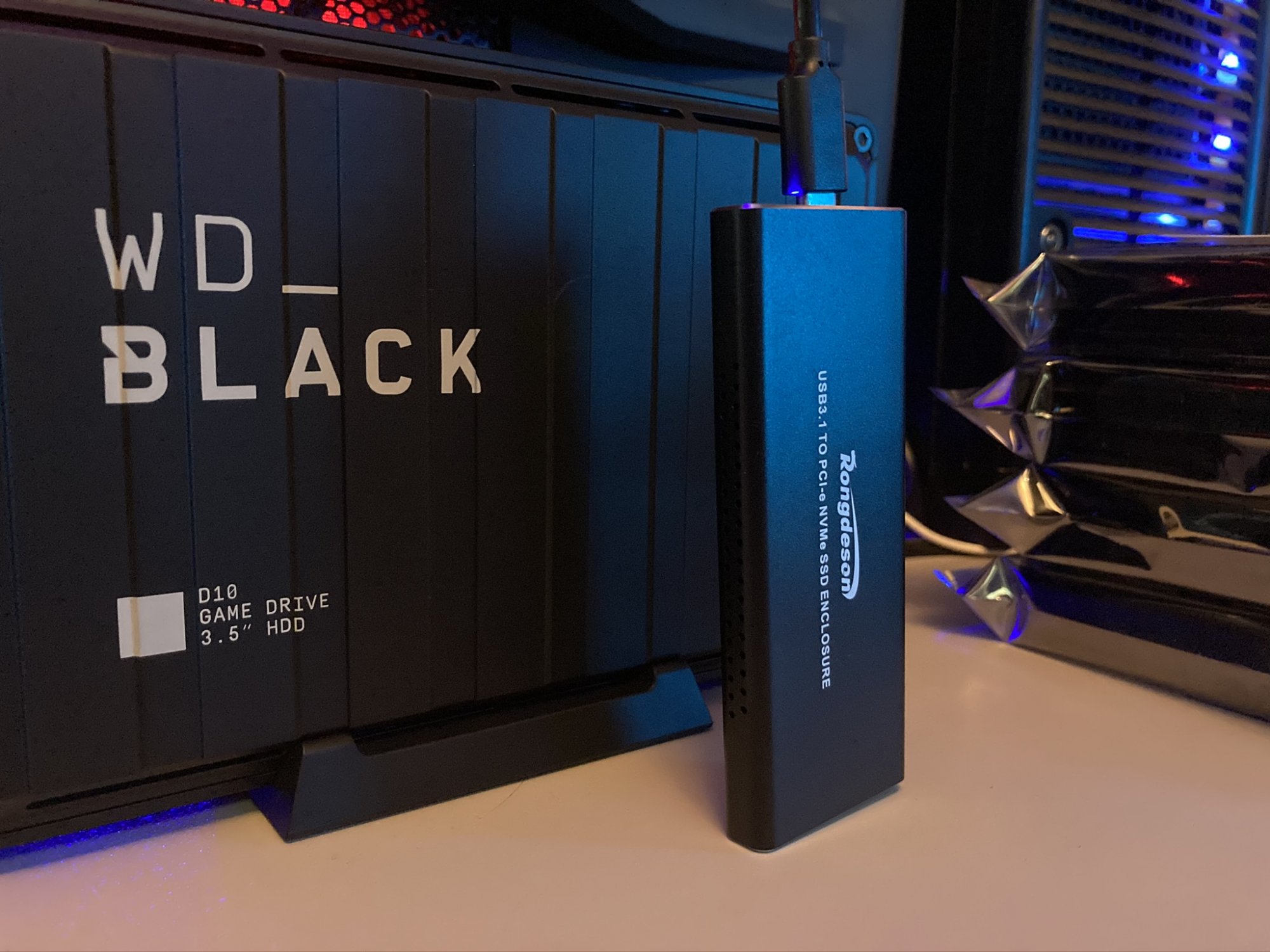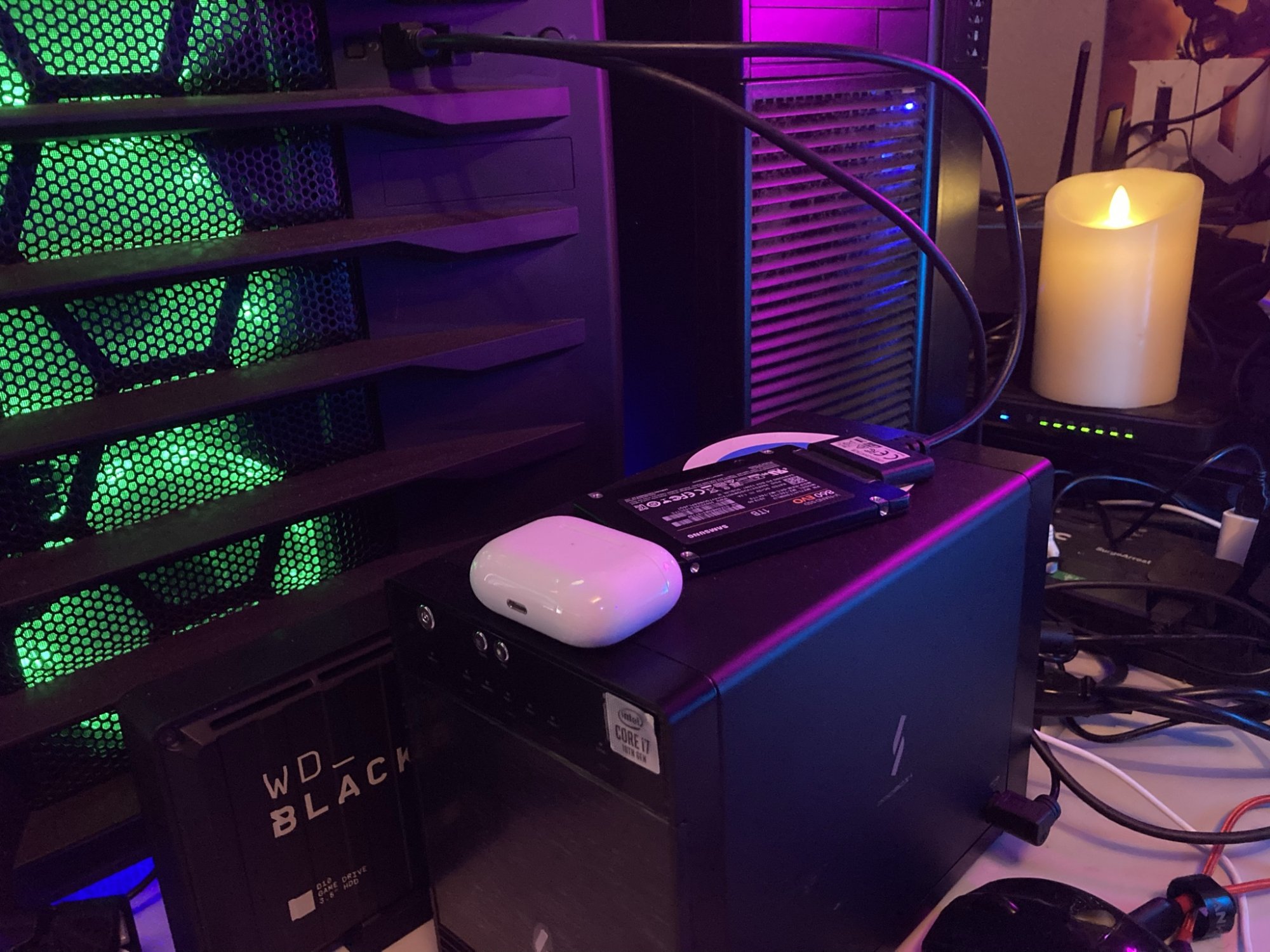SLP Firehawk
Limp Gawd
- Joined
- Jan 30, 2020
- Messages
- 184
Hi. For years I've been hardware cloning my systems C: once I get everything working so I can easily swap drives in case of a problem and I'm right back working again. I read about possible issues hardware cloning SSDs and thought I'd start a thread specifically about this.
I got some new SSDs (same brand and model as what I already have Samsung EVO) and am getting ready to do some changes to a workstation so I wanted to find out what was best approach hardware clone or get a software clone? I do not want to slow down my system since it's used for video editing.
A very helpful user shared this on another thread:
The main issue of SSD's is cloning them, and having the support to properly clone in software and with docks due to the possible SSD controller's logics being different, and the mapping to the flash. In other words, you cannot bit-to-bit like you can with HDD. With an SSD you need to treat it as like a physical install of drive, activate/partition, THEN copy the bits over, and set as boot (if it to be boot from). A easier way to mean what I say is that, the interface is a standard but how the flash is communicated with and is handled is not necessarily a standard. This is the FTL-Flash Translation Layer (Flash Translation Layer - an overview | ScienceDirect Topics). So, if the copy was not proper with the translation you will have "malalignment."
I always read about the controller, make sure it has integrated DRAM for cache (I am not talking about the possible NAND cache set aside) and then make that purchase. This could be one reason as to note a difference in performance. Writes vary with controllers, DRAM or DRAM-less, and NAND cache. Reads should always be basically fast, but based off of channels as in how fast (q.v. USB flash drives). Writes.....that is a weakness of all flash, and technically you want to read more from an SSD than write to it. This is a good read if you have the time and want to learn a bit. I don't think it goes to far over the head: Coding for SSDs – Part 3: Pages, Blocks, and the Flash Translation Layer | Code Capsule.
Perhaps, you may want to look into having a Windows 7 VM? Be able to upgrade to modern HW and SW eco-system, and still keep legacy applications. Your mileage will vary. You do have possible modern options. BTW, in the digital know we call this, and your issue(s) "nesting."
Edit: With a VM, which is actually free via software or integration within the modern OS, you have the ability to also keep the image of the install!! Easy to back up and easy to copy into the VM managers to operate. This would be a better way to keep the nest, if the favor of the digital god's are with you......
I got some new SSDs (same brand and model as what I already have Samsung EVO) and am getting ready to do some changes to a workstation so I wanted to find out what was best approach hardware clone or get a software clone? I do not want to slow down my system since it's used for video editing.
A very helpful user shared this on another thread:
The main issue of SSD's is cloning them, and having the support to properly clone in software and with docks due to the possible SSD controller's logics being different, and the mapping to the flash. In other words, you cannot bit-to-bit like you can with HDD. With an SSD you need to treat it as like a physical install of drive, activate/partition, THEN copy the bits over, and set as boot (if it to be boot from). A easier way to mean what I say is that, the interface is a standard but how the flash is communicated with and is handled is not necessarily a standard. This is the FTL-Flash Translation Layer (Flash Translation Layer - an overview | ScienceDirect Topics). So, if the copy was not proper with the translation you will have "malalignment."
I always read about the controller, make sure it has integrated DRAM for cache (I am not talking about the possible NAND cache set aside) and then make that purchase. This could be one reason as to note a difference in performance. Writes vary with controllers, DRAM or DRAM-less, and NAND cache. Reads should always be basically fast, but based off of channels as in how fast (q.v. USB flash drives). Writes.....that is a weakness of all flash, and technically you want to read more from an SSD than write to it. This is a good read if you have the time and want to learn a bit. I don't think it goes to far over the head: Coding for SSDs – Part 3: Pages, Blocks, and the Flash Translation Layer | Code Capsule.
Perhaps, you may want to look into having a Windows 7 VM? Be able to upgrade to modern HW and SW eco-system, and still keep legacy applications. Your mileage will vary. You do have possible modern options. BTW, in the digital know we call this, and your issue(s) "nesting."
Edit: With a VM, which is actually free via software or integration within the modern OS, you have the ability to also keep the image of the install!! Easy to back up and easy to copy into the VM managers to operate. This would be a better way to keep the nest, if the favor of the digital god's are with you......
![[H]ard|Forum](/styles/hardforum/xenforo/logo_dark.png)

